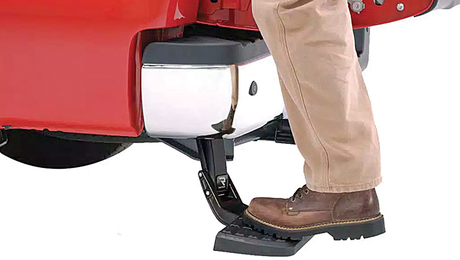I was changing my HO ins and was refused because I had a wall /floor heater. I called the ins company and taked to them and after explaining to them the type of heating system my house has they said It was a “Gravity Heater”. I told them it was a heating box under the house (I have a raised foundation) with a vent on the floor and wall. The grill got warm but the floor didnt as I have wood floors and a plastic plant and wall unit set next to the heating vents. So what makes a “gravity heater” different then a normal wall/floor heater. Im just curious. Oh yea they said they might come out and check. I just dont know the difference. Â
Darkworks:Â We support the US military “We kick your
and take your gas”















Replies
A "gravity heater" using convective circulation. That cold air is denser than warm air and therefore falls into the grate on the floor. And that the same, after having been trough the heat exchanger is hotter and less dense so it rises out of the heater.
The quick check is, "does your heater/furnace have an electric fan?" That is both the benefit and downside of a gravity heater. Since they use no electricity (other than the millivolts generated in its own thermocouple pile), they work normally in a power failure. Whereas a forced air system leaves you out in the cold, so to speak. But the higher velocity air moved by an electric fan does capture heat with greater efficiency.
I'm not sure why an insurance company would care. Gravity heaters - certainly whole-house ones - tend to be older installations, sometimes much older. But there are also ancient forced-air furnaces as well. I'm not aware of a greater fire or carbon monoxide risk.
Bob Walker, do you know (CO and fire in convective heaters)?
Possibly what the insurance company did not like was the floor furnaces where the burner was just below the grill. And children would get burned on them.
They do tend to move less air than fan-powered systems. And therefore can have pretty hot grates on them. I rented a 1946-constructed home with an orginal convective floor heater (in and out through the same large grate). And there seemed to be no safety shutoff for low air flow. So if such a heater was mostly covered with a blanket or sofa, the temperatures could get quite high.
Whereas a forced air system, having electrical controls, can easily confirm a minimum air flow before opening up the main gas valve.
David Thomas Overlooking Cook Inlet in Kenai, Alaska
I agree... dangerous!!! The grate gets really hot AND if the heat exchanger were to get a crack in it flames or sparks could come out directly into the room. There was a fire here a couple of years ago that took the life of a college student when a blanket fell onto the grate and caught fire.
"Insurance Co policies seem to vary by region"
Yup. In California, they all wanted to now about swimming pools. Nobody asked me up here if we had a swimming pool. Wonder why? But they all asked about trampolines, implying that they are as dangerous as I thought.
David Thomas Overlooking Cook Inlet in Kenai, Alaska
The only gravity furnaces I see are the old octopus types; I've heard of the under floor type (or floor heaters as they're called in my area) but I've never seen one in actual use. (I've seen a couple abandoned and rusted out beyond recogntion in some crawl spaces.)
The few gravity types (and other "pot' type furnaces, where the flame is inside one cylindrical heat exchanger coimnbustion chamber) which I've tested for CO were very clean burning; I've had several with no measurable CO and the others had very low readings - I don't think I've ever got over 10-12 ppm on one. (And that's usually from the pilot light!)
I don't know why some insurance CO's won't write polcies against houses with them, though.
They're more likely to have asbestos, of course.
Insurance CO policies seem to vary by region, for some reason. I'll hear from HI's in other parts of the country that ins co's aren't writing against this or that or the other (e.g., underground oil tanks in MA, but no issue in MI or OH) but that those things aren't issues in other places for the same ins companies!?!_______________________
"I may have said the same thing before... But my explanation, I am sure, will always be different." Oscar Wilde
Bob
I it not just regionla variations, but also company to company. I have found that is several different types of insuracne. What one company backs away from or charges extra for the next one doesn't care.
A while back someone, I think Jeff Buck, was wanting to buy a house and his insurance company would not cover it because of the type of siding. Ended up calling around and the others did not care.
there are a number of increased risks with the floor type heaters. They are illegal under most codes. For good reasons.